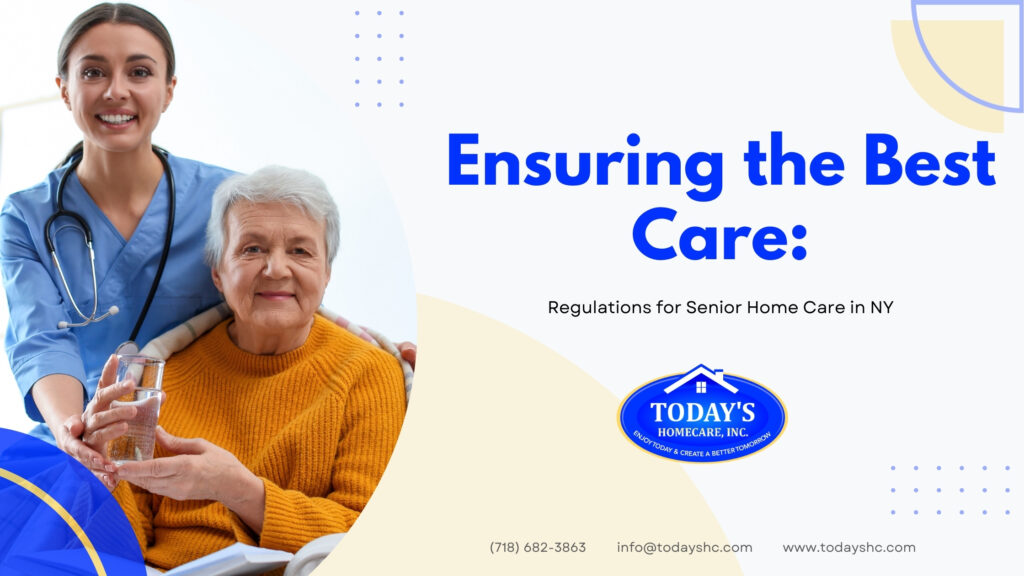The safety and well-being of your loved ones receiving senior home care in New York are of utmost importance. Understanding the regulations that govern senior home care is essential to ensure that your family members receive the best possible care. In this blog, we explore the key regulations in New York that are designed to protect and enhance the quality of senior home care.
The Importance of Regulations in Senior Home Care
Regulations are in place to safeguard the rights and well-being of seniors who receive home care services. They set the standards for care and hold providers accountable for the quality of services they deliver.
Key Regulations for Senior Home Care in New York
- Licensing Requirements: Home care agencies in New York must be licensed by the New York State Department of Health (DOH). This ensures that they meet specific criteria and standards for providing home care services.
- Care Plans: Home care agencies are required to develop and maintain individualized care plans for each senior receiving care. These plans outline the specific services and support the senior will receive.
- Assessment and Supervision: Seniors must undergo comprehensive assessments by healthcare professionals to determine their care needs. Additionally, these agencies are responsible for supervising their staff to ensure the proper delivery of care.
- Training and Qualifications: Home care agencies are required to ensure that their caregivers and staff are appropriately trained and qualified to provide the necessary care services.
- Medication Management: Regulations include guidelines for medication management to ensure that seniors receive the correct medications, dosages, and administration.
- Patient Rights: Seniors have the right to be informed about their care and to make decisions about their care. Agencies must respect these rights and provide information to seniors and their families.
- Quality Assurance and Reporting: Home care agencies are required to implement quality assurance programs to continuously monitor and improve the quality of care. They must also report incidents and adverse events to the appropriate authorities.
- Complaint Procedures: Regulations outline the complaint procedures that seniors and their families can use to report concerns or grievances regarding the care they receive.
- Home Health Aide Certification: Home health aides must meet specific certification requirements to provide care to seniors. They are typically required to complete training programs and pass competency exams.
- Oversight by State Authorities: New York State authorities oversee home care agencies to ensure they comply with regulations. This includes conducting inspections, investigations, and responding to complaints.
Understanding and Advocating for Regulation Compliance
Families and seniors receiving home care in New York can actively advocate for the compliance with regulations by:
- Asking Questions: Inquire about the licensing and qualifications of the home care agency.
- Reviewing Care Plans: Ensure that the senior’s care plan is individualized and reflects their unique needs.
- Monitoring Medication Management: Keep an eye on medication management to ensure that it is in accordance with regulations.
- Respecting Patient Rights: Familiarize yourself with the rights of seniors and ensure that they are respected.
- Reporting Concerns: If you have concerns about the care being provided, don’t hesitate to report them through the appropriate channels.
Conclusion
Understanding the regulations that govern senior home care in New York is fundamental to ensuring the safety, well-being, and quality of care for your loved ones. By being informed and proactive, you play a crucial role in ensuring that your family members receive the best possible care and that home care agencies are held to the highest standards of service and accountability.








 to Sheepshead Bay
to Sheepshead Bay

 to Forest Hills 71
to Forest Hills 71





